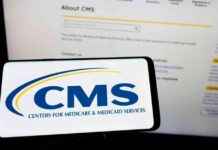Merck Strikes Deal for Obesity Pill
In a groundbreaking move, Merck, a leading pharmaceutical company, has recently signed a deal with Hansoh Pharma, a Chinese biotech firm, to develop and market an experimental oral obesity drug. This deal, valued at up to $2 billion, marks a significant milestone in the quest to combat obesity worldwide.
Merck will pay an upfront fee of $112 million for an exclusive license to the drug, with the potential for additional payments of up to $1.9 billion in development and regulatory milestones, as well as royalties on sales. This strategic partnership aims to position Merck as a key player in the rapidly growing obesity drug market, which experts predict could exceed $100 billion annually by the early 2030s.
Unlike existing weight loss treatments that require injections, the oral obesity drug developed by Hansoh Pharma offers patients a more convenient dosing option. This innovation aligns with the broader industry trend towards developing oral treatments for various medical conditions, including obesity.
Endo International Whistleblower Scandal
In a separate development, a whistleblower recently exposed the unethical practices of Endo International, a pharmaceutical company known for marketing prescription opioids. Despite allegations of criminal behavior, federal authorities delayed taking action against Endo for over a decade.
The U.S. Department of Justice eventually settled with Endo for $200 million, a fraction of the estimated $7 billion in fines and charges owed by the company. This lenient settlement has raised concerns about accountability in the pharmaceutical industry and the protection of public health.
While federal prosecutors cited Endo’s bankruptcy filing and financial constraints as reasons for the reduced penalties, critics argue that the company prioritized executive bonuses over fulfilling its legal obligations. The case highlights the complex interplay between corporate interests, regulatory oversight, and the well-being of patients affected by opioid addiction.
Expert Insights
According to Ed Silverman, a seasoned pharmaceutical industry journalist, these recent developments underscore the evolving landscape of healthcare and the challenges faced by companies in balancing profit motives with ethical responsibilities. Silverman’s extensive experience in reporting on pharmaceutical trends offers valuable insights into the complexities of drug development, regulatory oversight, and corporate accountability.
As the healthcare sector continues to grapple with issues of transparency, patient safety, and regulatory compliance, the role of investigative journalism in exposing misconduct and advocating for public health remains crucial. By shedding light on the inner workings of the pharmaceutical industry, journalists like Silverman play a vital role in holding companies accountable and informing the public about critical healthcare issues.
In conclusion, the Merck-Hansoh partnership and the Endo International scandal serve as poignant reminders of the high stakes involved in drug development and regulatory enforcement. As the pharmaceutical landscape evolves, ensuring ethical conduct, patient safety, and corporate accountability must remain top priorities for industry stakeholders, regulatory agencies, and the public at large.

















